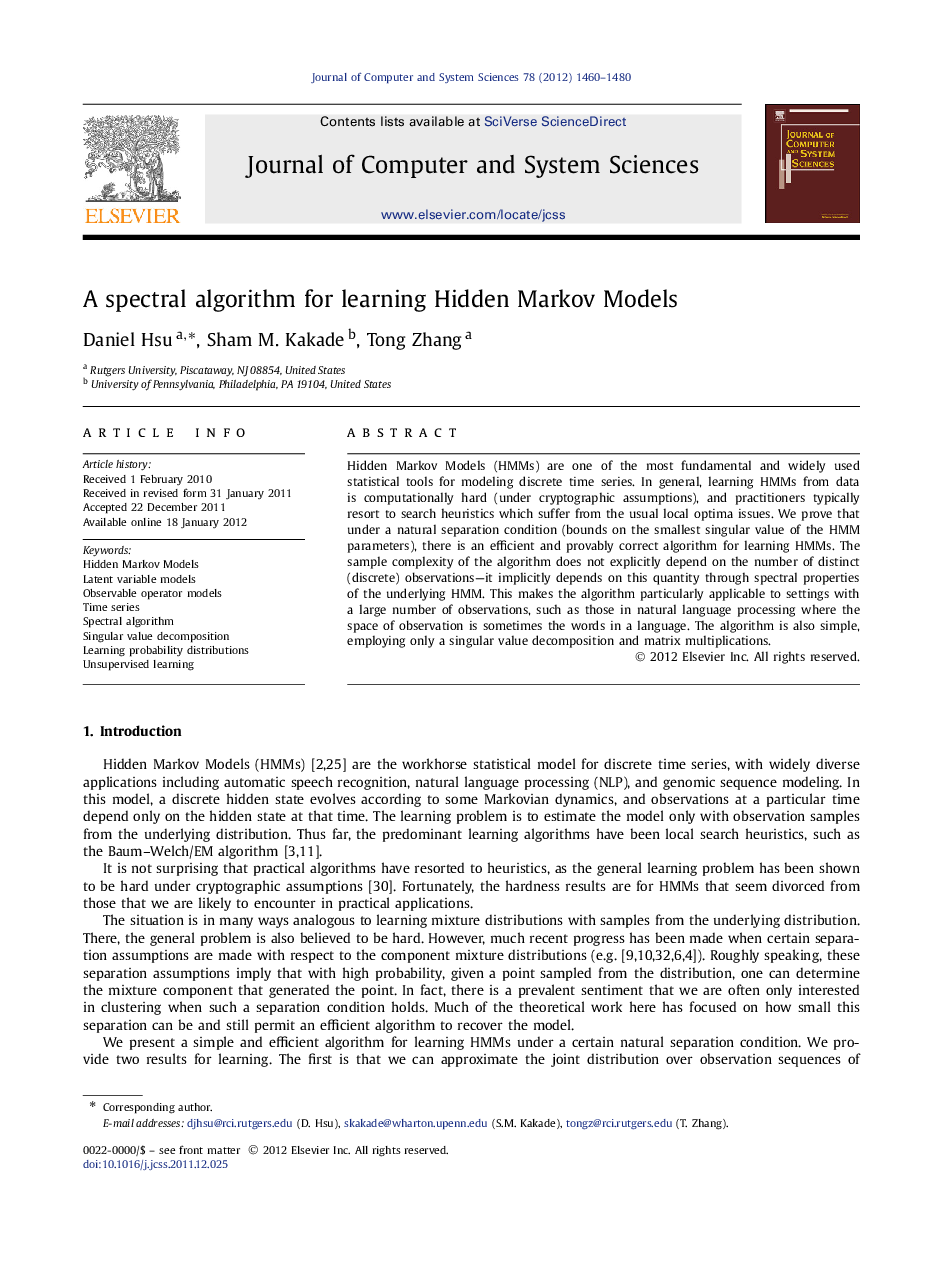| Article ID | Journal | Published Year | Pages | File Type |
|---|---|---|---|---|
| 430287 | Journal of Computer and System Sciences | 2012 | 21 Pages |
Hidden Markov Models (HMMs) are one of the most fundamental and widely used statistical tools for modeling discrete time series. In general, learning HMMs from data is computationally hard (under cryptographic assumptions), and practitioners typically resort to search heuristics which suffer from the usual local optima issues. We prove that under a natural separation condition (bounds on the smallest singular value of the HMM parameters), there is an efficient and provably correct algorithm for learning HMMs. The sample complexity of the algorithm does not explicitly depend on the number of distinct (discrete) observations—it implicitly depends on this quantity through spectral properties of the underlying HMM. This makes the algorithm particularly applicable to settings with a large number of observations, such as those in natural language processing where the space of observation is sometimes the words in a language. The algorithm is also simple, employing only a singular value decomposition and matrix multiplications.
► Proposes an algorithm for provably learning HMMs under a natural separation condition. ► Provides finite sample complexity bounds for joint and conditional density estimation. ► Proposed algorithm is efficient, requiring only an SVD and matrix multiplications.
